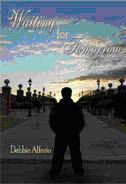
It's that time of year again, and everyone's focus seems to be on finding that perfect gift. I understand how frustrating it can be to head to the local mall and spend hours flitting from one store to the next, only to go home empty handed or with something I "settled" on. We authors are sitting on a goldmine of gift ideas not only for those on our own shopping lists, but dozens of others as well. How do you use your gift of writing as a gift for others?
1--Let's start with the obvious--books make awesome gifts! All of us know at least a few avid readers, so why not sign a copy or two of your work, wrap them up in pretty paper, and hand them out? Or, set up a booth at a local craft or book fair and suggest your book(s) as the "perfect gift."
2--Take Tip #1 a step further and offer to donate a portion of your profits from holiday sales to a charity or local homeless shelter, food bank, etc. Offer a discount off the purchase price for donating a non-perishable food item or a small toy to be given to a needy child. People will be encouraged to buy not only for the value of the book itself as a gift, but the added bonus of helping others.
3--Nothing says "I care" better than a handwritten note. Is there someone you're thinking of who could use a word of encouragement during this time of year, or would simply love to hear from you? Instead of picking up the phone, buy some pretty stationery and craft a meaningful letter to let them know they're on your mind. If you're the poetic type, include a few original lines of prose. They will cherish it!
4--Who doesn't enjoy looking through old photos and sharing memories? Make up a small scrapbook or photo album and include a short story that correlates with each photo. Reliving times past is the perfect way to spread the joy of the season.
5--Write the script for a short holiday play to be presented by your church, neighborhood playhouse, or just family members in your living room. It can be fun and festive, or serious to reflect your beliefs. Writers are often prompted to "show, not just tell" and this is one way you can do that!
Tap into that creativity and let me know what other ideas you might have in the comments section. Wishing you a peaceful and joyous holiday season!








